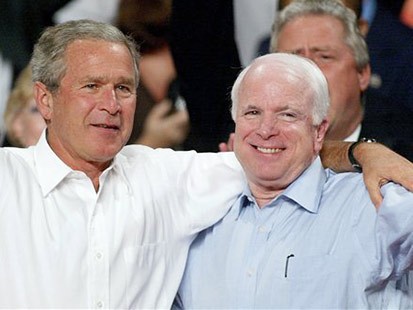All States' and no National Prerogative makes Jack an Illiterate Boy
Whether Americans elect Obama or McCain on Tuesday, Mike Petrilli in his Washington Times Op-Ed says that President Bush's No Child Left Behind (NCLB, whimsically pronounced "nicklebee") Act is here to stay. Too deeply entrenched in American education policies to be easily removed, NCLB is a widely criticized act intended to get American students up to par internationally. While the NCLB’s implementation itself may have been an excessive imposition of the power of the national government upon state governments, NCLB’s worst faults come from an interpretation of federalism where states are given too much prerogative. Yet, these faults can be improved while still allowing states to maintain some control over their schools.
The act sets a central goal of 100% of American students proficient in reading and maths by 2014, while allowing states to set their own standards of proficiency. This leniency in standards problematically establishes a system of incentives that seems more likely to lower the competitiveness of American students than to raise it. Sam Dillon of the New York Times notes that states with high academic standards compare unfavourably against states with relatively lower standards under NCLB. What logically would follow is a perverse race to the bottom where the states that appear most successful under NCLB may be the most reading and maths-illiterate of them all.
NCLB can be improved, but only if Americans are willing to cede some of the states' powers. If the federal government set national tests they could still allow states to set their own goals and methods towards achieving a high rate of proficiency, as Mr. Petrilli recommends. Such standardization would allow for objective comparison of reading and maths competence, and even productive competition.
Given that NCLB will not disappear with Mr. Bush—even Obama, who is critical of the act talks about fixing, not revoking—the next president will have to make sure to reform educational policy so teachers and children will work towards higher, not ever lower, standards. To do so, however, he would have to negotiate the American dilemma described by Samuel Huntington where, to function most effectively, government must lose some credibility.




